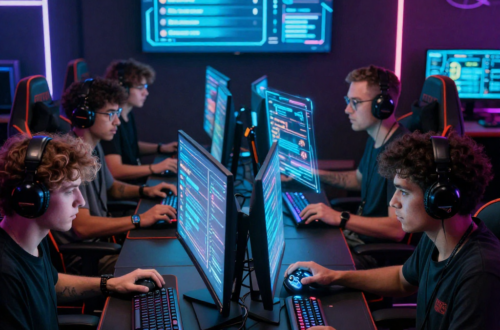Online poker has become one of the most accessible and popular ways to play the classic card game. Unlike traditional casinos, online platforms allow players to practice, experiment, and learn at their own pace. Whether you are a beginner aiming to understand the basics or an experienced player looking to refine your strategies, improving your poker skills online requires focus, discipline, and smart practice. Here’s a guide to help you enhance your poker abilities and gain an edge over the competition.
Understand the Rules and Hand Rankings
Before developing strategies, it is essential to fully understand the rules of the poker variant you are playing. Whether it’s Texas Hold’em, Omaha, or Seven-Card Stud, knowing the hand rankings, betting rounds, and game structure is critical. Understanding which hands are strong, how betting works, and how the game progresses gives you the foundation to make informed decisions and react effectively during play.
Start with Free Games
Many online poker platforms offer free or practice games that allow players to gain experience without risking real money. These games are perfect for learning the mechanics, testing strategies, and building confidence. Playing free games regularly helps you get comfortable with online interfaces, understand pacing, and experiment with different approaches before committing financially.Visit Online Harley 168 For More Details.
Study Basic Strategy
Basic poker strategy is essential for improving your skills. This includes understanding starting hand selection, position play, and betting tactics. For example, tight-aggressive play—selecting strong hands and betting confidently—can increase your chances of success. Studying strategy charts, learning about pot odds, and understanding when to bluff or fold are fundamental steps to becoming a more skilled player.
Practice Bankroll Management
Effective bankroll management is critical in online poker. Decide on a specific amount of money you are willing to invest in a session and stick to it. Divide your bankroll into smaller portions to manage risk and avoid losing everything in a single game. Proper bankroll management allows you to play strategically, stay focused, and develop your skills without the pressure of financial stress.
Observe Opponents
One advantage of online poker is the ability to observe opponents’ patterns and behaviors over multiple games. Pay attention to their betting tendencies, frequency of bluffs, and style of play. Recognizing patterns and predicting opponent behavior gives you a strategic edge. Although online play lacks physical tells, analyzing betting habits and timing can provide valuable insights.
Use Online Tools Wisely
Many online poker platforms offer tools such as hand histories, statistics, and tracking software to analyze your gameplay. These tools can help you identify strengths, weaknesses, and trends in your play style. Reviewing past hands and decisions allows you to refine your strategy, correct mistakes, and make more informed choices in future games. Using these resources effectively accelerates skill development.
Learn Bluffing and Deception
Bluffing is a critical skill in poker, and online play provides opportunities to practice it safely. Successful bluffing relies on timing, understanding your opponents, and choosing the right situations. Avoid overusing bluffs, as experienced players can detect patterns. Learning to balance aggressive and deceptive plays is essential for long-term success.
Practice Emotional Control
Emotional control, or avoiding “tilt,” is vital for improving poker skills. Losing streaks or frustrating hands can lead to impulsive decisions and poor strategy. Staying calm, focused, and rational ensures that you make calculated moves and adhere to your strategy. Online platforms allow for short breaks or pausing sessions to maintain emotional balance and prevent mistakes.
Participate in Tournaments
Online poker tournaments are an excellent way to enhance skills under competitive conditions. Tournaments teach players about strategic adjustments, managing chip stacks, and adapting to changing dynamics. Participating in these events helps develop patience, decision-making, and risk assessment—skills that are transferable to cash games and higher-stakes matches.
Continuous Learning
Poker is a game that constantly evolves, and successful players commit to continuous learning. Read strategy guides, watch gameplay videos, join online poker communities, and discuss tactics with other players. Staying informed about new strategies, trends, and techniques ensures that your skills remain sharp and adaptable to changing gameplay environments.
Final Thoughts
Improving your poker skills online requires a combination of practice, strategy, and self-discipline. Understanding rules and hand rankings, playing free games, studying basic strategy, managing your bankroll, and observing opponents are essential steps. Practicing bluffing, maintaining emotional control, using online tools, participating in tournaments, and committing to continuous learning further enhance your gameplay. By following these approaches, players can refine their poker abilities, increase their chances of success, and enjoy a more engaging and rewarding online poker experience.


